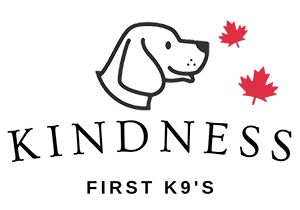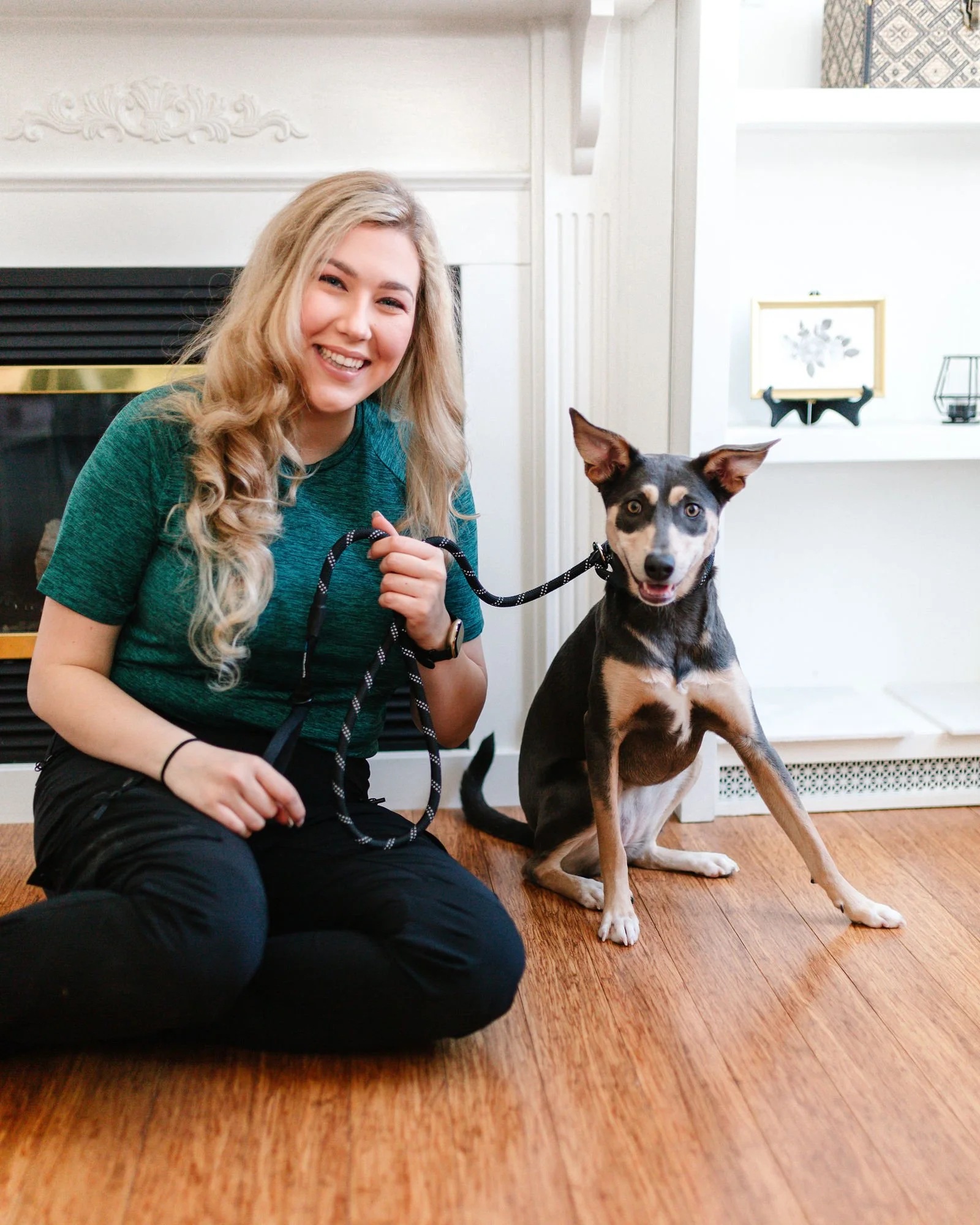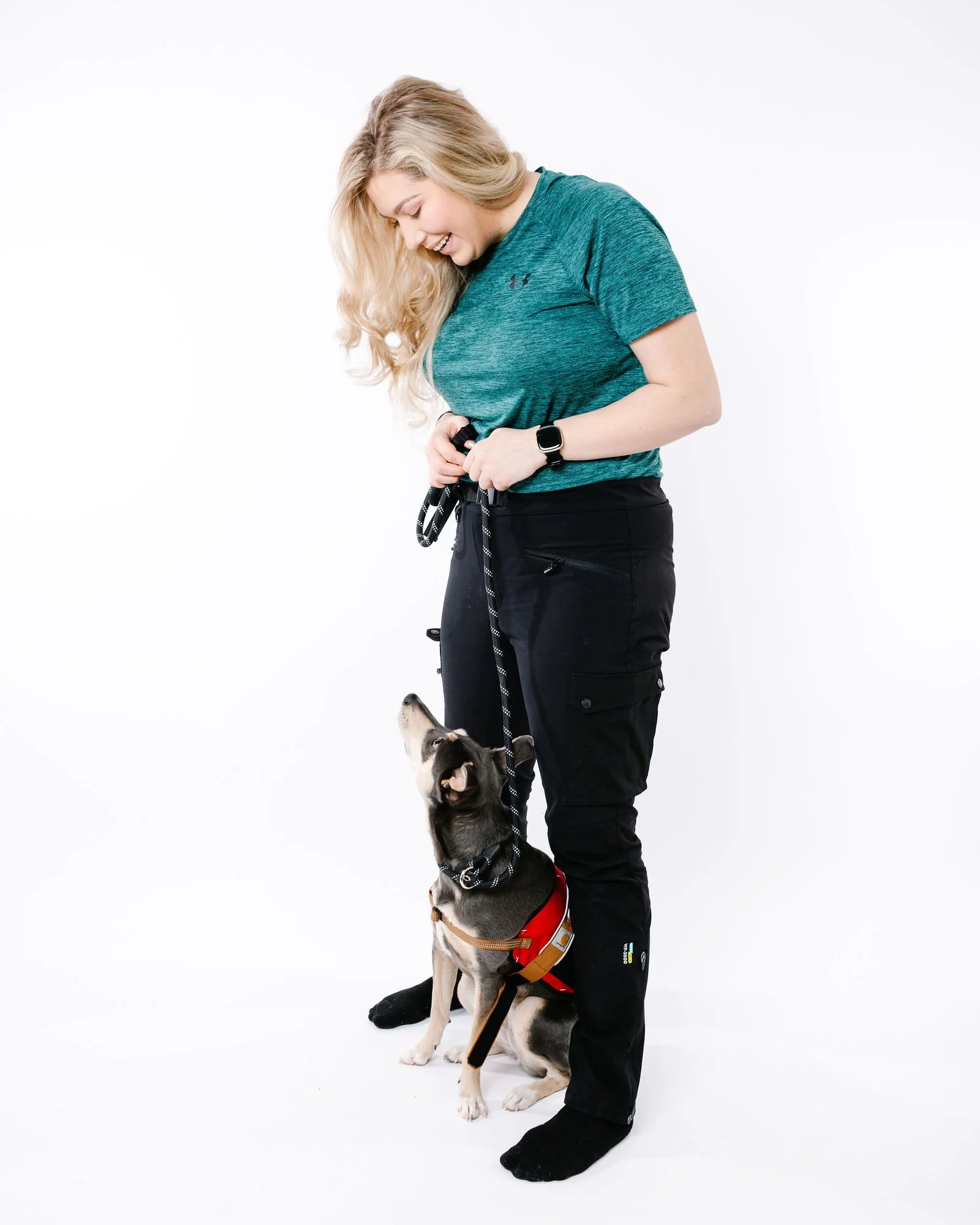We Love Dogs.
Meet Victoria, our head trainer. She has a background in behavioural therapy and assisting people with both mental and physical disabilities. She has a huge love for helping animals and people, with over 4 years of experience in training dogs.
A modern approach
We’re here to make your life easier. Whether you have a disability or any other kind of hardship in your life that requires assistance from a special dog. Our kindness first approach ensures that we train your dogs to be the ultimate helper and companion for you. We tailor our training to target your specific needs to ensure the best outcome.
Training Resources
-
Behaviour modification includes various methods that have been tailored to changing a dog’s undesirable behaviour while also accommodating the dog’s specific needs and personality. Modification can be used to tackle behaviours such as:
Attention-seeking efforts, including jumping up on people and making noise for grab attention
Fear responses, including those towards loud noises, unfamiliar people or animals, and thunderstorms
General aggression towards others, including growling, biting, and barking at people, dogs, and/or other animals
Separation anxiety, including destroying furniture and whining when left alone
Territorial behaviour, including guarding and snapping when around food and/or toys
Unwanted reactions during walks, including lunging at moving objects/people/animals
While it is possible for dog owners to train their own dogs by mimicking what they learn in media, directive websites, and training videos, often what dog owners think is correct might still contribute to undesired behaviour. It is important to consult a dog behaviour specialist who can not only help train the dog, but also teach their owner the proper and most effective way to modify their dog’s behaviour. There’s where we can help!
-
Our dog behaviour specialists have dedicated years of their life to understanding canine behaviours and learning how to create behaviour modification plans that best suit each individual dog’s needs. To create these plans, our dog behaviour specialists receive insights into the best possible accommodations, including:
Identifying the trouble behaviours that need modification
Understanding what might have led to these behaviours and the circumstances in which these behaviours arise most often
Getting to know the dog’s general health history and daily habits
Providing strategies in order to assure safety for the dog and the owner
Explaining to the owner why the dog’s behaviours occur and how they can understand the dog’s body language and communication in order to navigate the dog’s behaviours
Providing recommendations that will help reduce undesired behaviours
Supplying owner with ethical and effective strategies to modify behaviours
Additionally, to help the behaviour specialists create their dog’s personalized behaviour plan, owners are encouraged to take notes of their dog’s undesired behaviours, including what it looks like, what normally occurs before the start of this behaviour, and how the behaviour is usually handled. Videos also work great to provide the dog behaviour specialists with more information and insight!
-
Our dog behaviour specialists engage exclusively in LIMA training. LIMA, standing for Least Intrusive Minimally Aversive, is one of the most humane and effective forms of dog training. This technique involves the dog trainer identifying the most kind, ethical, and gratifying form of positive reinforcement for the dog, phasing out the undesired behaviour. The idea behind LIMA training is that the positive reinforcement will encourage the dog to continue the positive behaviour in order to receive more rewards. Our dog behaviour specialists not only tailor their training to the dog’s needs but will also provide the owner with as much control and choice as they need or would like, allowing full collaboration when it comes to their preferences, needs, and ability. While our LIMA training focuses primarily on operant conditioning and positive reinforcement, we also employ a variety of other skills and techniques, including:
Behaviour adjustment training (BAT): rewarding the dog for moving away from the original unwanted behaviour
Counter conditioning: undoing previous classical conditioning and creating new associations to previous triggers
Desensitization: helping the dog become less sensitive to triggers
Rewards: providing the dog with positive reinforcers, such as food, toys, and/or lots of praise
Shaping: starting off by rewarding behaviours that are similar to the desired behaviour and slowly becoming more specific
We strongly believe in rewarding good behaviour instead of punishing bad behaviour. The focus on positive reinforcement rather than negative punishments comes from the observation that punishment can actually lead to more fear or anxiety within the dog, potentially increasing the frequency of the undesired behaviour, or even possibly developing new negative behaviour. By using the LIMA training and preventing the abuse of punishment and overly restrictive responses to undesired behaviour, we aim to decrease the association between training and negative punishments.
With the help of our dog behaviour specialists, all dogs within our care will eventually learn to respond to cues without the need for food/treat provision, yelling, or any other reinforcer. Simply a command will do! For more information, please don’t hesitate to call Victoria at (…) or send us an email at (…). We look forward to hearing from you and your furry friend!


